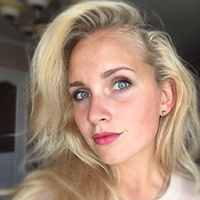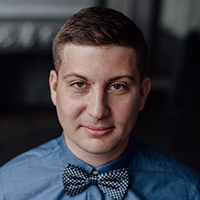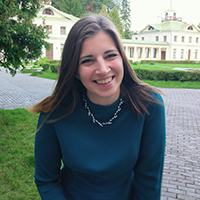How to Find Your Sensei at HSE

A new mentoring programme has kicked off at HSE that gives students the opportunity to choose an HSE graduate to be their ‘sensei’. These can be people who have already evolved professionally in their field or who have implemented a business idea similar to that of their mentees. This programme continues HSE’s long tradition of senior students helping their younger peers. Below are several stories recalling successful university mentoring at HSE.
Sensei in economics: tutoring programme at ICEF
The first months at university are not easy with difficult subjects and a lot of new teachers. How does one sort everything out? ICEF offers a ‘safety net’ for junior students – a tutoring programme that has long been active at the college. ICEF tutors are the most knowledgeable and active senior students who help junior students to settle in, as well as advise them on how to study a certain subject better, how to set a working pace, and even deliver introductory lectures on certain complex subjects. The tutoring programme helps first-year students adjust easily to student life, pass their first exams, enrol at the University of London, and so on.
ICEF also offers other programmes to support its first-year students, such as office hours with lecturers, supplemental classes in the form of help rooms, and providing supporting and review lessons.

Anastasia Shipovskaya, third-year student at ICEF, tutor
Tutors and first-year students meet on August 31. We introduce ourselves to each other, speak about studies and the college, and organize team-building activities to help new students make friends with each other. After the first session, there is a meeting between tutors and new students’ parents (the only such meeting over the course of four years); this is an opportunity for parents to meet the teachers and talk to tutors about their children.
Throughout the year, we organize supporting meetings with first-year students. We help them with homework, tell them about useful resources, or just talk informally over a cup of coffee. We also stay in touch online. Sometimes, tutors help students with internships, or even employment via networking.
Those looking to become tutors must write a motivation letter and pass an interview, where their communication skills and reactions to certain situations are assessed.
Entrepreneurial sensei: HSE Business Incubator
The HSE Business Incubator is a small Silicon Valley of start-ups that are supported by experts and businesspeople who are invited to serve as mentors.
The Business Incubator was founded in 2006, and today it supports over a hundred companies each year. In 2018, it was ranked among the Top 10 accelerators in Europe by UBI Global.
The HSE Business Incubator doesn’t develop technology or a certain business field; rather, its main task is to increase the number of entrepreneurs and help young business professionals fight their fears through the example of experienced peers. The project works with all the big funds and angel investors, and its partners include Microsoft, Google, and Amazon.
In addition to educational and networking events, the Business Incubator holds an ‘Iron Entrepreneur’ contest, lectures by renowned speakers as part of Integration Days, hackathons, workshops, young entrepreneur support programmes HSE {pro}, and DemoDays, where investors are invited to see some ‘packed’ projects. In 2017, Tele2 opened its workshop at the Incubator.

Mikhail Erman, Head of the HSE Business Incubator
The project evolved as an initiative by several HSE students and professors to help students and budding entrepreneurs move quickly from idea to starting a company. The first residents of the Incubator included TimePad, Top Delivery, Native Speakers’ Club, and other projects that are well known today. Our database includes over 900 mentors who are entrepreneurs with extensive experience in business, along with experts from certain fields.
To become an Incubator resident, candidates complete an acceleration programme, which is opened for enrolment monthly. As part of this programme, start-ups work with coaches and consultants who look for resources and provide contacts with mentors. It is not uncommon to change mentors frequently for a synergy to form.
Intercultural sensei: ESN HSE Moscow
The HSE Buddies Network, which was founded in 2014 by Russian-speaking HSE students, helps international students adapt to life at the university. Volunteer ‘buddies’ introduce international students to the campus and the study office, help with directions, overcome language barriers, integrate into the local cultural environment, and take care of formalities. Volunteers help international students at orientation sessions and other student events. Buddies are supervised and supported by the HSE International Students Office.
Any student who knows HSE’s inner workings and can speak English well (any other foreign language is a plus) can become a buddy volunteer. But the main criteria for a good buddy are communication skills, a positive attitude, and a willingness to help international students. Buddies can obtain a certificate of their volunteer work.

Elizaveta Zasova, fourth-year student at ICEF, buddy coordinator
Our network is part of ESN (Erasmus Student Network), and the buddy volunteering programme is one area of activity for ESN. We help international students coming to study at HSE to adjust to the university and to life in Moscow.
We have a website where students and buddies register; this is where people look for a buddy or a student in need of support – for example, someone with similar interests. They then contact each other and agree on how they will communicate and what kind of support is needed. Interests are very important if a student is looking for a buddy to be involved in cultural exchange.
Once every six months, we send out a questionnaire to students to get feedback on our buddies’ activities. This is how we adjust and improve our system of cooperation. On our Facebook page, we share interesting stories of communication between buddies and their mentees. These stories focus on traditions, places, and people. For example, we recently went to a Maslenitsa celebration, and introduced international students to our ‘pancake culture’.
Game sensei: HSE Training School
The Training School project aims to build team spirit. Students of HSE and HSE Lyceum, professors and administrative employees take part in university events, offer support to each other, and work in teams at various training sessions. Studies at the Training School usually take place as games and team-building events, often during out-of-town trips and group working sessions. The School organizes activities such as ropes courses, animation programmes, role-play games, business games, quests, and career-guidance events. For example, the ‘Storm’ adaptation camp introduces students to new projects and prepares them for study.
Many students become mentors for prospective students. The School offers career guidance through the ‘We are together’ and ‘My choice’ projects. Mentor students introduce secondary school students to university life, which gives future university students a realistic understanding of the university and helps them choose the right area of studies.

Anastasia Nerovnova, fourth-year student at the Faculty of Social Sciences
I’ve been part of the Training School for over three years. I participated in one of its projects as a first-year student, and then stayed as a coordinator. By the way, the Training School was my motivator to apply to HSE. As a 10th-grader, I went to a Training School camp, spent three sessions in a row there, got to know the student life and became an active part of it. I went through the ‘Storm’ introductory camp, and later I participated in schools for organizers, animators and instructors. The idea of these schools is to teach active participation in student associations and understanding of your role in their activities. This helps students understand in advance what social activities they would undertake at HSE. After the schools, they can stay at the Training School as members of the staff.
Mikhail Erman
See also:
‘The Fulfilment I Derive from Helping Others Makes the Programme Special to Me’
At the end of 2023, HSE University launched its International Mentoring Programme, where international alumni help current students adapt to the new environment, develop their personal skills, set goals, and make clear plans for job search and career growth. The HSE News Service spoke to participants about why the programme is interesting to mentors, what it can offer mentees, how it is it different from other career guidance initiatives, and more.


